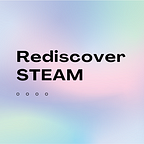Katherine Freese, Theoretical Astrophysicist
Katherine Freese is a highly acclaimed astrophysicist conducting pioneering research into the very fabric of our universe and attempting to unveil the mystery posed by dark matter. She has championed an incredible career in the scientific domain, with her research helping to clarify divided opinions of how dark matter is likely to behave. The conflicting theories at the time were the MACHOs (Massive Compact Halo Object) and the WIMPS (Weakly interacting Massive Particles). These approaches depicted dark matter to either be contained in massive cosmological objects that do not react with light, thus rendering us unable to see them or for dark matter to behave as heavy particles (some 10,000 times heavier than a proton), thus making them hard to detect. During her research into both competing theories, she discovered that there were not enough candidates for the MACHO theory, such as white and brown dwarfs, to contain the sheer size of dark matter present in our universe. Not only was her research groundbreaking, but she has also persevered as a woman in physics, despite the sexist attitudes that permeated the field during her career.
Freese was captivated by the sciences since her early childhood, as both her parents were biologists, which made a career in this domain seem possible for her as a young woman. Her mother served as a role model for her growing up, showing that it was possible for women to make a dent in the incredibly male dominated field. Her interest in astrophysics was sparked when she was hospitalized after an emergency appendectomy, where the only book to read was an introduction to special relativity. Being enthralled by such a simple text and having her perceptions of the universe changed so fundamentally jump started her interest in cosmology. She was among the first women to major in physics at Princeton University, where she received her B.A., and as far as she believes she was the second woman ever to do so. As she progressed through her further education, she received her M.A. in physics from Columbia University in 1981 and then earned her Ph.D. from the University of Chicago in 1984. In addition, she was awarded the William Rainey Harper Award Fellowship upon completion of her doctorate. From then on she proceeded to have placements and teaching positions at various prestigious institutions, such as MIT, where she was an assistant professor and the Harvard / Smithsonian Center for Astrophysics, where she had her first postdoctoral placement. Now, she is currently serving as the George Eugene Uhlenbeck Professor of Physics at the University of Michigan. On top of this, she has served as a visiting professor at many more acclaimed institutions, including: Caltech, CERN and the Max Planck institute in Munich, as well as serving on many committees as well. Furthermore, she is also the author of the popular book: The Cosmic Cocktail: Three Parts Dark Matter, which was published in June 2014.
However, her path was not as clean-cut as her male counterparts’ were, and she faced doubt and prejudice throughout her career. A defining moment highlighting the injustices women faced in the workplace was when she was denied maternity leave while working at MIT. She was still required to handle all her responsibilities, which she did, despite the fact she had given birth and was caring for a newborn. Thankfully, society has progressed and challenges like these are seen less and less these days, however, a sexist attitude still lingers. Freese herself has expressed the doubt she felt in herself as a young woman in science, which she claimed stuck with her until she was 40. Despite this, she has proven how women can flourish in the field with the right amount of drive and commitment, firmly establishing herself as a prominent role model for other aspiring scientists.
References
Bio — Dr. Katherine Freese. Chopra, 2015, https://chopra.com/bio/dr-katherine-freese
“Katherine Freese.” National Academy of Sciences, www.nasonline.org/member-directory/members/2537558.html.
Rutkin, Aviva Hope. “Across the Universe with Astrophysicist Katherine Freese.” Aston Martin, 2017, https://magazine.astonmartin.com/people/across-universe-astrophysicist-katherine-freese
